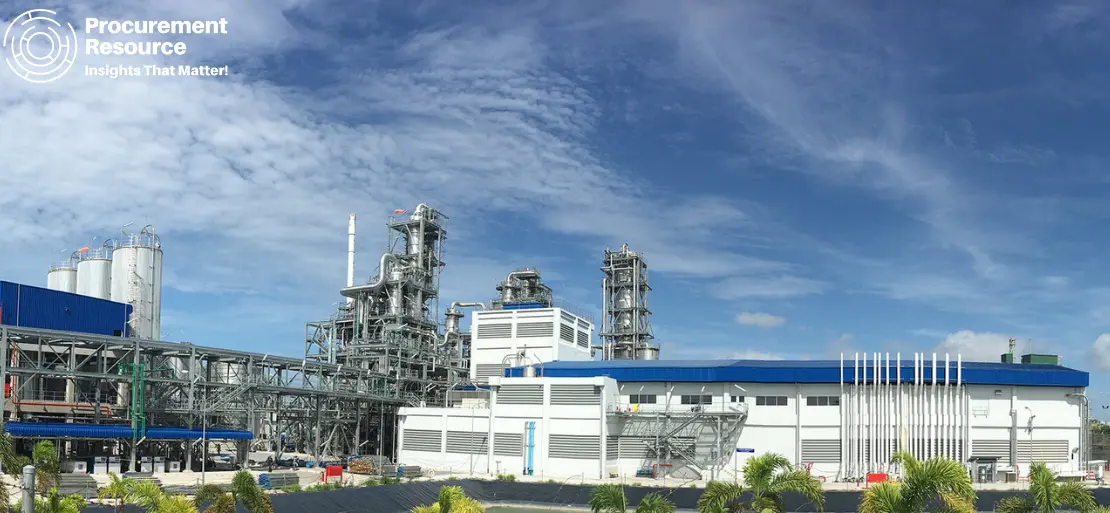Total to Establish a New Sustainable Plant for PLA Production

Total, the French integrated oil and gas MNC, will quit its processing unit at its Grandpuits’ crude oil processing refinery and convert it into a ‘zero crude platform’. The facility will be converted in order to produce sugar-based polylactic acid (PLA) and biofuels. The total capital expenditure for this project is estimated to be EUR 500 million.
Total is also teaming up with Plastic Energy, a global chemical recycling firm, in order to build a chemical recycling unit to recycle plastic waste into polymers feedstock that can be used to make food packaging. Total will become the largest shareholder (60%) of this chemical recycling plant, and Plastic Energy will hold the remaining 40% of the stakes.
The facility is said to be operating entirely by solar energy-generated electricity, which will be derived from the two photovoltaic solar plants. These solar plants will be built in the French facility with an output of 52 megawatts. This new PLA unit will be a joint project by Total and Corbion, which will be a follow-up from their last endeavour in Thailand two years ago.
The plant, which is to be commissioned to be finished by 2024, will be able to produce 100,000 tons of PLA per year and 400,000 tons of biofuels per year, which includes 170,000 tons of sustainable aviation fuel, in line with the French nation’s targets to make 2% aviation fuel renewable by 2025 and 5% by the year 2030. The rest of the yield from this facility will include renewable naphtha, bioplastics, and renewable diesel.
According to Total, the demand for PLAs is increasing at a rate of 15% per year. This upcoming plant will allow Total to meet its targets, which is to produce 30% of its polymers from recycled materials by the year 2030. The plant is being established with an innovative recycling technology, which converts the plastic wastes into a liquid called Tacoil by using a method called the pyrolysis process. This resultant Tacoil can then be used as a feedstock in the process of converting different polymers with identical properties into virgin polymers.
The refinery situated in Grandpuits, southwest of Paris, currently has a capacity of up to 100,000 barrels per day of crude oil. With more push towards renewable sources from around the globe, it is likely to decline the demand for crude oil. Thus, the European Union’s Green Deal is also aiming to entirely terminate the carbon emissions of its 27 members by the year 2050.
The new facility will derive feedstock from animal fats, used cooking oil, as well as vegetable oil. However, the facility will not be using palm oil as it has been blamed by environmental groups for increasing deforestation. In the first quarter of 2021, the crude refinery platform of the facility will be discontinued, and the storage of petroleum products is expected to end by 2023.
The total aim for the new facility will be to produce 400,000 tons of biofuels per year, out of which 170,000 will be focused on the aviation industry, 120,000 tonnes will be renewable diesel for the automotive industry, and 50,000 tonnes of renewable naphtha will be used to produce bioplastics. This steady shift will then allow Grandpuits plant’s capacity to reach a 28-megawatt peak and the capacity at Gargenville to a 24-megawatt peak.
Due to the COVID-19 impact on the operations, Total is said to experience an overhaul at Grandpuits, which will be followed by layoffs in employments. Out of 400 existing jobs at the refinery currently, 250 will be kept following the overhaul, and Total will also create 15 new positions in the bioplastics plant. However, the three-year overhaul is expected to create around 1000 more jobs.


.webp)